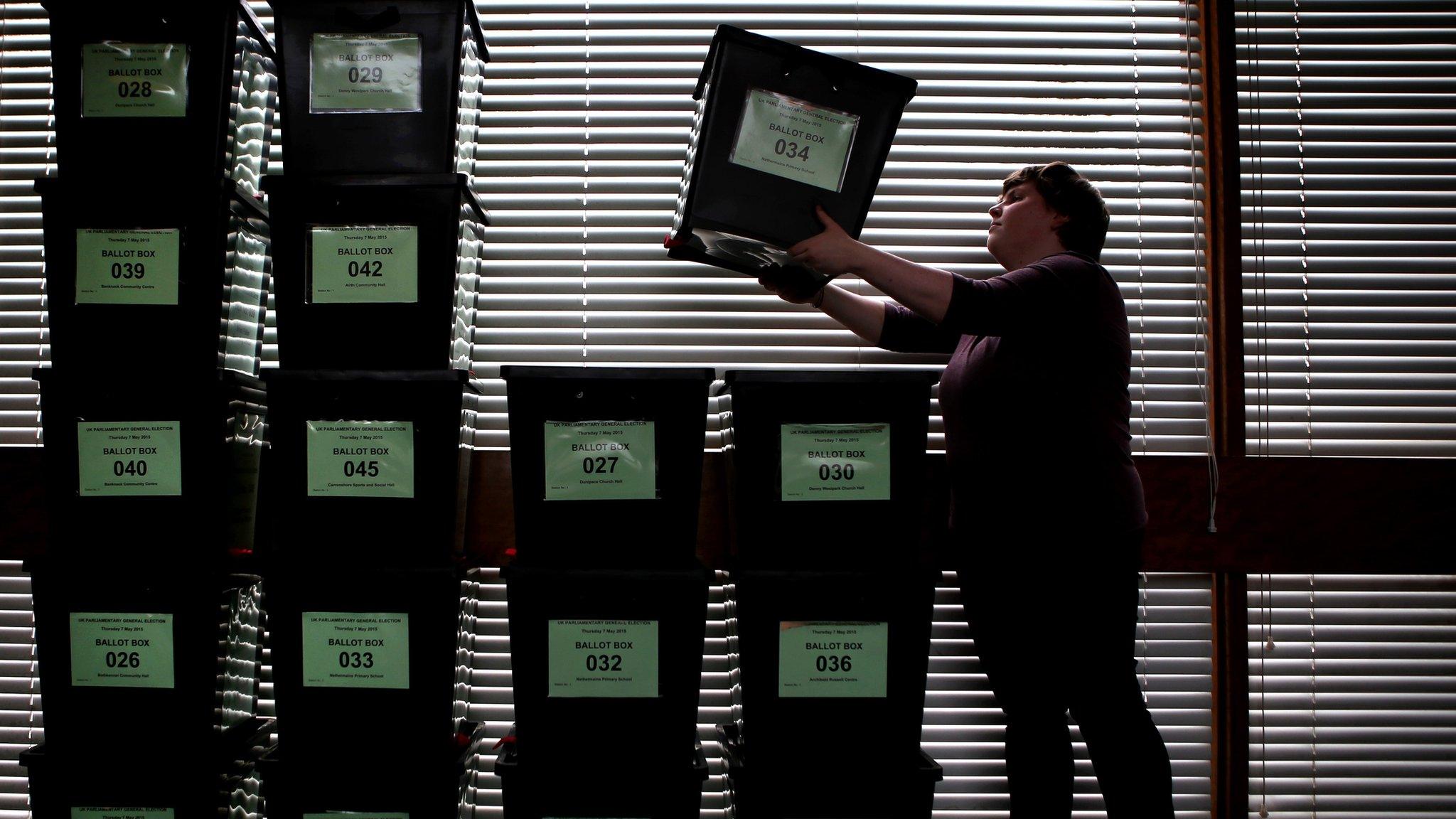Reality Check: Is US system a 'disaster for democracy'?
- Published
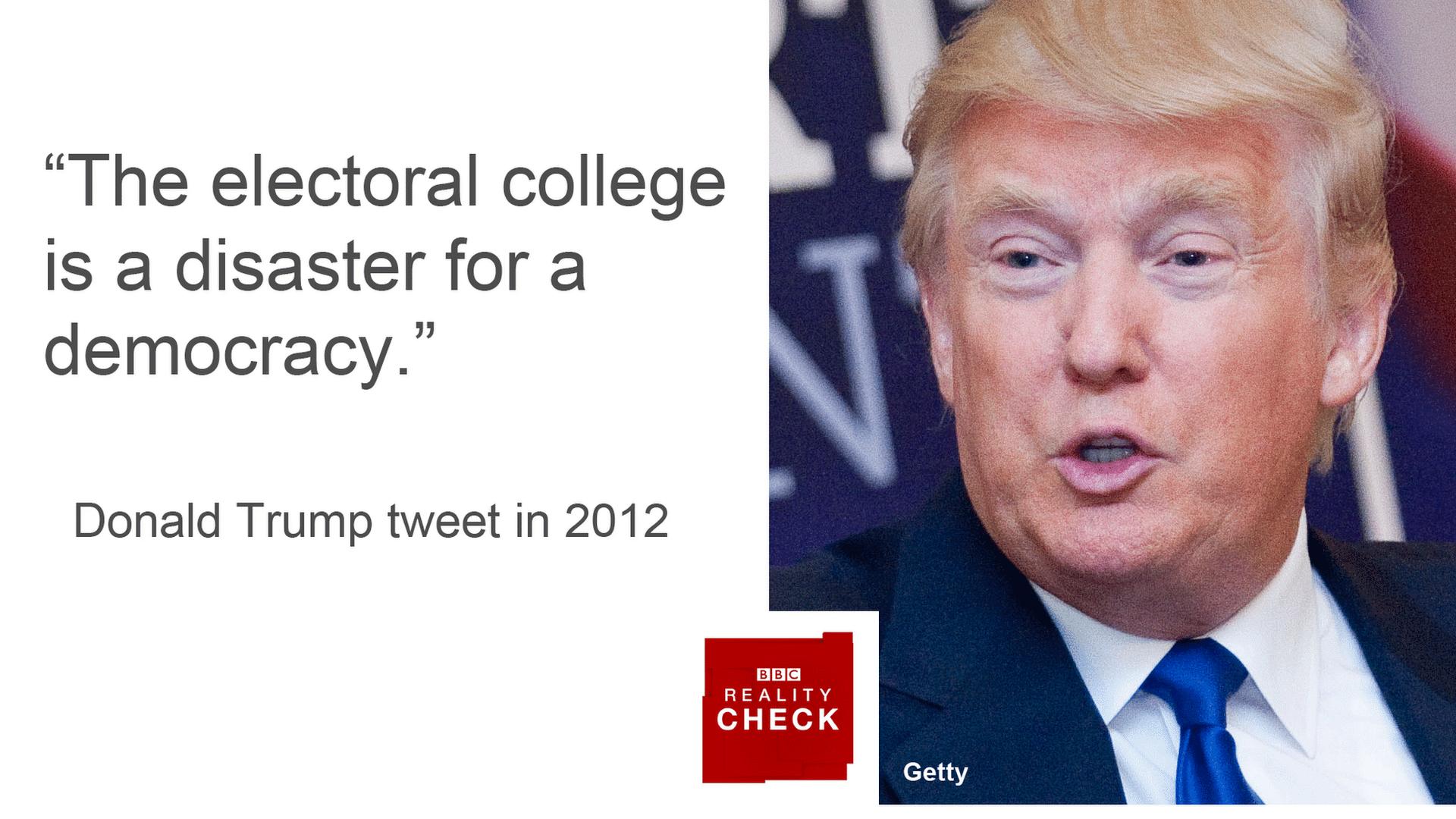
The claim: The Electoral College system is a "disaster for democracy" because it means a candidate can get the most votes and not win the election.
Reality Check verdict: It is true to say that in America you can win the popular vote and lose the election. This is also true of the electoral system in the UK and elsewhere. Such systems are democratic, although some people would like them to be changed to be more directly representative of how votes were cast.
In 2012, Donald Trump tweeted, external that the American electoral system was a "disaster for democracy".
Since being elected he has repeated this sentiment, saying he would rather see a system in which, "you get 100 million votes and somebody else gets 90 million votes, and you win".
But the president-elect has benefited from the system he dubbed undemocratic.
It is likely that the final tallies from last week's election will confirm that more people voted for Hillary Clinton, but Mr Trump won, under a system known as the electoral college.
Campaigning organisations such as National Popular Vote, external agree with Mr Trump, arguing that the candidate most people vote for should get into the White House.
Two days after seeming to stand by his words, however, Mr Trump tweeted that the electoral college was "actually genius in that it brings all states, including the smaller ones, into play".
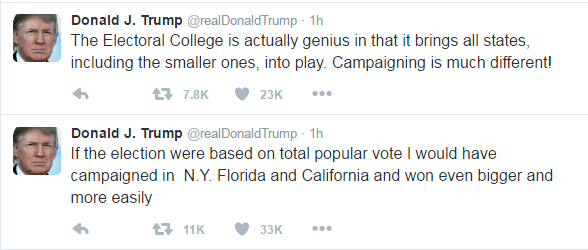
Single vote
Instead of totting up each person's vote, in the US every state gets a certain number of votes depending partly on the size of its population. The way it's worked out , externalmeans there's a minimum of three votes per state.
In most states, the most popular candidate wins all of its votes, even if 49% of people voted a different way. The system is different in Maine and Nebraska, where voting is broken down into Congressional districts, which means not all the state's electoral college votes have to go to the same candidate.
Winning a state like California, which gets 55 of the total 538 electoral college votes, will put a candidate a long way towards the 270 state votes needed to win the presidency. Even if they win that state by a single vote, they get all 55 votes.
It is better to win by a small margin in lots of states than win by a landslide in just a few - the scale of the win (and therefore the number of people who support you) is meaningless - you still only get one state with a fixed number of electoral college votes.
Battleground states
Candidates identify the states that are safely either Republican or Democrat - the ones they are bound to lose or win - and broadly ignore these in their campaign efforts. Instead, they focus their attentions on the states that tend to swing between the two parties.
This means that, arguably, the election is decided not by the nation as whole but by a small number of so-called battleground states.
Two-thirds (273 out of 399) of campaign events in the 2016 election, external were held in only six states (Florida, North Carolina, Pennsylvania, Ohio, Virginia and Michigan).
If you live in a state where most people support one party, your vote against that party is wasted, whereas if you live in a more divided state your vote has greater influence.
Electoral college votes also do not match up exactly to population size meaning some people's votes have more clout than others, external. Because the minimum number of votes a state can have is three, the smallest states get electoral power disproportionate to their population.
The average state gets one electoral vote for every 565,166 people. But Wyoming, which only has a population of 532,668, gets a vote for every 177,556 people, giving those individuals more than three times the electoral influence of the average American.
'Closely- fought'
For many, the idea that you can have the most people vote for you but still lose the election seems undemocratic. This has happened five times in US history, most recently in 2000 when Al Gore lost to George W Bush.
The fact that Mr Trump won several key swing states very narrowly, while Mrs Clinton won big majorities in some states is part of the reason she was able to get more votes but still lose the election.
It's important to recognise that politicians campaign to the system they are operating in - we cannot say that if the electoral system were different the result would definitely have been different since the candidates may well have campaigned accordingly.
Could it happen here?
Could you win a UK general election without winning the popular vote? Absolutely - it happened in 1951 and 1974.
As in the US, our first-past-the-post system means any votes you win in a seat where you don't have a majority effectively don't count - it doesn't matter whether you gain 40% or 4% of the votes.
There has been a long-running campaign in the UK to reform our electoral system., external Campaigners have called for a system of proportional representation as far back as 1884.
Under the UK's multi-party system, in the most extreme case you could comfortably win the popular vote but get no seats in the House of Commons by coming second in every constituency.
What is more common is to see a party winning a majority in Parliament with as little as 35% or 36% of the popular vote, as Labour did in 2005 and the Conservatives in 2015. In the 1950s and 1960s, winning parties averaged about 47%.
And we can see the same kind of thing happening with the vote share of smaller parties. In 2005, the Liberal Democrats received 22% of the votes but only won 62 seats, which was less than 10% of the seats in the House of Commons.
In the 2015 election, UKIP won 3.9 million votes out of a total of around 30 million votes cast nationally, but only ended up with one Member of Parliament.
- Published9 November 2016
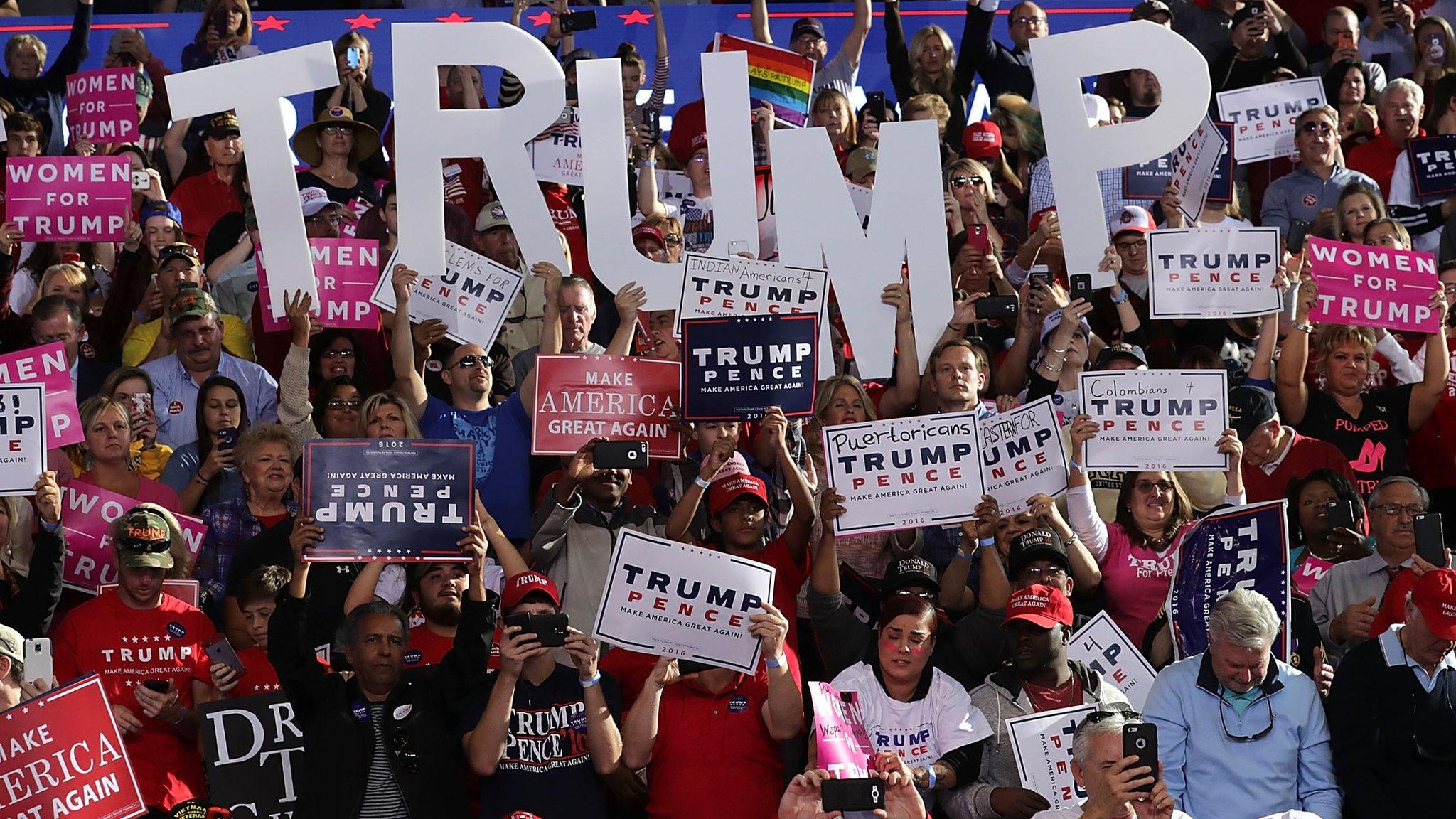
- Published5 May 2015
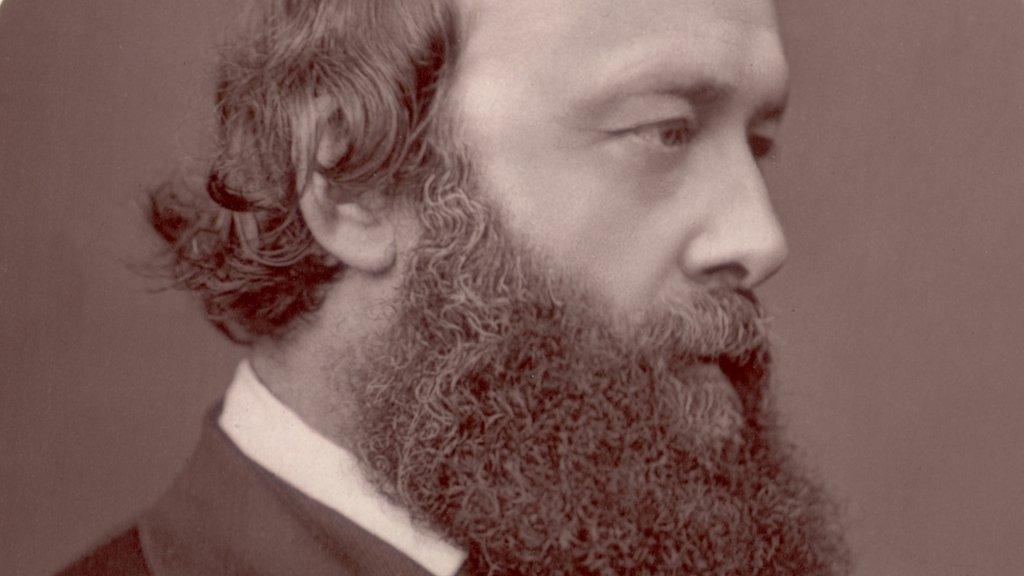
- Published9 May 2015
